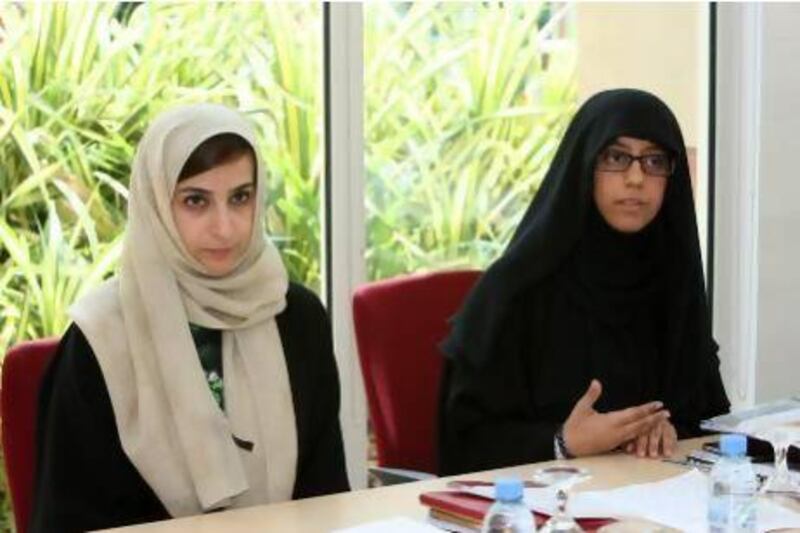DUBAI // Progress in the quality of education at private schools in Dubai has come to a standstill.
Only 10 of 143 schools managed to improve their ranking in inspections this year, and about 113,000 pupils are in under-performing schools.
“It looks like progress has stunted because our standards go up every year,” said Jameela Al Muhairi, head of the Dubai Schools Inspection Bureau. “Because we do this annually, schools need to constantly have plans in place to better the system.”
Eighty private schools continue to provide a poor education that does not match the standards laid down by the private schools regulator, the Knowledge and Human Development Authority.
In the recently concluded round of annual inspections, 12 schools were rated outstanding, 51 were found to be good, 67 acceptable and 13 unsatisfactory.
Three schools with high pupil numbers dropped to unsatisfactory, which seriously affected the progress report.
The overall score card is the same as last year. The number of children attending unsatisfactory schools has risen from 10,988 last year to 14,049, an increase to the level in 2008-2009, when inspections began. In the core subjects of English, Arabic, mathematics and science, inspectors found slow to no progress.
“The rate of improvement in students’ attainment and progress in mathematics has slowed this year despite a previous upward trend,” they reported.
“Inspection findings continue to indicate a lack of opportunities in many schools for students to perform investigative science.”
There was a slight improvement in English language performance, but progress in Arabic faltered, with the courses being taught to non-Arab pupils deemed weak in a significant number of schools.
On the other hand, inspectors found better teaching practices and understanding of Islamic education lessons.
Schools following the UK curriculum took top honours in terms of quality of teaching, learning and assessment methods, followed by those offering the International Baccalaureate.
Inspectors highlighted issues in those areas in the kindergarten sections of the Indian system, state curriculum and US schools.
Fatma Belrahif, acting director of the inspection bureau, said teachers were not inclined to modify lessons to fit the appropriate age group.
“They are not experienced enough to make classes interactive and apply play-based learning,” she said.
Most schools were pulled up for poor special education needs programmes this year. Twenty-seven schools were not following guidelines for support prescribed by the regulator.
Ms Al Muhairi said schools’ lack of emphasis on special needs education did not affect their rank, but will be considered in the next inspection cycle.
“Although many schools have worked harder this year to recognise and identify their students who may have barriers to learning, still only a minority of schools have identification processes rated good or better,” inspectors reported.
A large number of schools, about 62 per cent, have managed to strengthen their leadership positions.
The report found that “self-evaluation remains a key area for further improvement among a large number of schools”.
Ms Al Muhairi said poor leadership in a third of the schools was a cause for concern.
“How well they distribute authority and responsibility, enrich the curriculum and promote staff training all contribute to how well their school is doing,” she said.
Kings Dubai, which was commended for such qualities, is the only school that has maintained an Outstanding status for the five years of inspections. The school now plans to expand and open two more schools in the next two years.
“The report refers to continued improvement across the board,” said a spokesman for the school, “with new outstanding judgments in learning support and governance as well as maintaining the outstanding rating of previous years.”
Kings recently enrolled 350 new pupils and added 34 teachers. Inspectors also praised its secondary curriculum, which is only five months old.
"The continued outstanding judgments for leadership give us confidence in our capacity to develop the vision of British schools with an international perspective," the school spokesman said.
aahmed@thenational.ae






